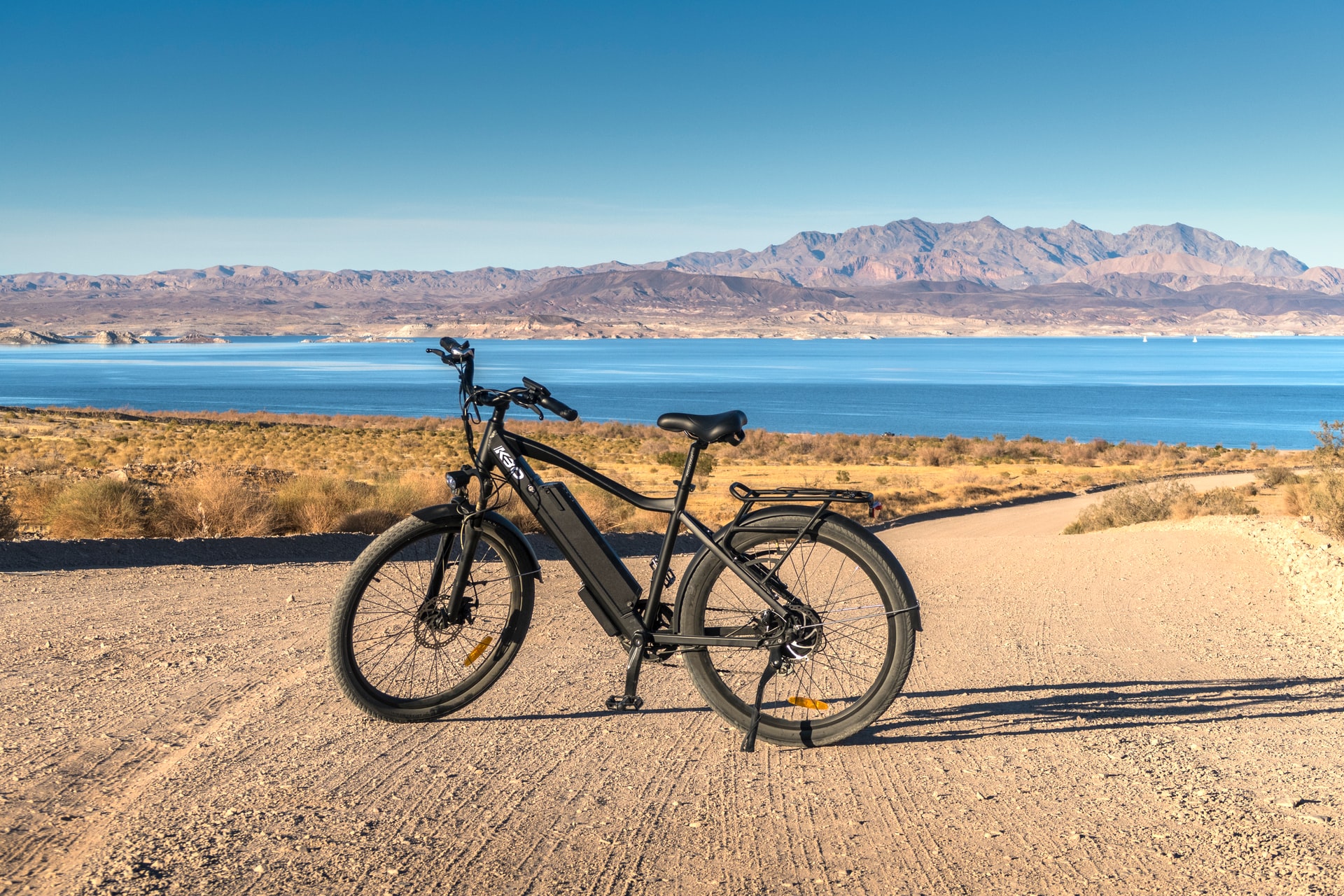Electric mountain bikes (eMTBs), also called e-mountain bikes, are a type of bicycle that provides extra power assistance from a small electric motor to help the rider pedal. As eMTBs have grown more popular for mountain biking in recent years, there has been increasing debate around whether they should be permitted on public cycling trails and wilderness areas. This essay takes a comprehensive look at some of the main benefits as well as drawbacks of using electric mountain bikes for the sport.
Battery Life and Range
One major advantage of eMTBs is that their electric motor and integrated battery pack allows riders to cover longer distances and access more remote trails without getting exhausted. The electric assist means less demanding climbs and significantly reduced physical strain over the course of a 3-5 hour ride. With a single charge, most electric mountain bike models offer anywhere from 20-40 miles of assisted range depending on the terrain, rider weight, power mode used, and other factors. More conservative use of the electric pedal assist to save battery can maximize total mileage. However, limited battery capacity poses some downsides as well. Running out of charge far away from any trailhead could potentially leave the eMTB rider stranded deep in the wilderness. Additionally, remembering to properly recharge the batteries after every ride is an added responsibility to maximize usable range on subsequent outings.
Longer Rides and Expanded Trail Access
The extended riding range unlocked by eMTB technology allows riders to explore more remote and challenging backcountry trails previously inaccessible on traditional mountain bikes. By providing electric assist on long, grinding uphill sections, eMTBs open up route options that only the most hardcore cross country riders could withstand physically in the past. The implications are more versatility to create epic loop rides linking amazing singletrack with forest service roads and doubletrack to traverse between trail systems. Electrical assistance essentially puts less fit riders almost on par with expert cardio-conditioned athletes in terms of total distance coverable. The result is more people can experience the thrills of riding remote backcountry routes.
Risk of Dead Batteries
However, with expanded range comes the increased risk of depleting batteries far away from the trailhead. Careful attention must be paid to battery management systems and remaining charge levels. Unexpected power demand from punchy climbs, high assist levels, rider weight and other factors can quickly sap electric range. GPS tracking apps provide one good way to monitor distance from the trailhead should batteries unexpectedly run dry mid-ride. Carrying an emergency USB charger pack also offers insurance against getting stranded from dead eMTB batteries.
Added Recharging Responsibilities
To prevent being caught with depleted batteries, eMTB owners must religiously recharge batteries after every ride. Forgetting to plug in the bike between uses could severely reduce assist levels and usable range to finish a long route. Battery charging process usually takes 4-6 hours to fully replenish from empty. So the added chore of recharging cuts into available riding time windows versus traditional mountain bikes always ready to roll. Riders must build the recharging habit into their schedule. Smart chargers help streamline the process while monitoring battery health. But it remains an added responsibility that comes with eMTB ownership.
Increased Accessibility for Some Riders
A major benefit provided by electric mountain bikes is opening the sport to riders normally excluded by fitness or medical barriers. The pedal assistance from eMTB systems allows both kids and older riders to enjoy the thrill of technical trail riding by reducing the hardcore physical demands. Riders with injuries, joint issues or medical conditions limiting cardiovascular capacity can also benefit from the electric assist on challenging climbs. Additionally, heavier riders who might walk most uphills on traditional mountain bikes can better experience technical singletrack trails using an eMTB. By lowering historical fitness barriers, this new class of mountain bike grants more people access to participate in the sport across a wider span of ages, sizes and physical abilities.
Opportunities for More Kids
The pedal assist capabilities engineered into eMTBs provides new opportunities for kids previously unable to tackle legit mountain bike trails on regular kid-sized bikes. Young riders typically lack both the muscle strength and cardiovascular capacity to climb major hills. On non-electric bikes these limits relegate kids to mostly flat dirt paths. But integrating an electric drive system allows the same children to challenge themselves on real singletrack trails with hills, rocks and roots that build core skills. Families can also better ride together thanks to eMTBs equalizing differences in abilities. More access and challenge builds skills at an earlier age providing a gateway to lifelong participation in mountain biking.
Older Rider Participation
On the other end of the age spectrum, electric mountain bikes also allow more seniors to keep enjoying mountain biking later into life. Physical limitations increasingly exclude older riders from the aggressive cardio demands of long off-road rides on traditional bikes. Joint pain, reduced mobility and faltering stamina tends to force most riders into retirement sometime in their late 50’s or 60’s. Integrating electric power assistance helps aging riders continue accessing beloved trail systems through added motor torque smoothing out challenging terrain. E-bikes represent a new lease on an active lifestyle combining physical activity with the thrill of mountain biking.
Riders with Medical Conditions
Expanding participation opportunities even further, electric motors enable mountain biking for those battling illness, injury or other medical barriers. Certain conditions like heart disease significantly limit cardiovascular capacity making uphill climbs impossible no matter a rider’s skill or experience level. Chronic injuries to knees or ankles can also severely hamper pedaling ability over long bumpy stretches. The right eMTB opens avenues to partly overcome these health-related obstacles based on customizable power assist when needed. By tailoring electric support to align with moment-to-moment limitations, e-MTBs unlock participation for more riders dealing with ongoing medical challenges.
Heavier Riders
Additionally, heavier riders unable to physically overcome gravity during extended climbs can better enjoy exciting singletrack trails thanks to eMTB assist. While skill and technique remains essential for handling technical descents, excess body weight typically proves extremely limiting grinding uphill on traditional mountain bikes. Over long rides, heavier riders often face the choice of painfully walking every hill or avoiding trails with elevation changes altogether. The extra torque generated by eMTB systems helps curtail these limitations by supplementing human power with electric drive when the gradients get ulta-steep. With the playing field leveled a bit, bigger riders can seek out epic trails rather than easy flat terrain.
Risks of Increased Accessibility
However, the increased accessibility enabled by eMTBs does introduce some downsides regarding trail user conflicts and safety issues. Critics argue that lifting long-standing physical barriers to enter mountain biking trails also lowers experience levels leading to damage, collisions and overcrowding problems.
Increased Risk-Taking
A major concern centers on inexperienced riders getting overconfident and taking unnecessary risks thanks to pedal assist thrust combined with lack of skills. Having a powerful motor can mask core deficiencies in handling, line choice and control. But these weaknesses get exposed at speed leading to crashes and injuries, especially downhill where assist cuts out. Critics contend that allowing early access to advanced trails short-circuits the proper skill progression earning through practice. Rapid acceleration also endangers other trail users like hikers. Careless operation increases erosion while forcing trail managers to restrict access.
Trail Damage
Relatedly, allowing early trail access via eMTB power increases risks of harming delicate landscapes before basic low-impact riding techniques are learned. In the hands of unskilled operators, electric torque enabling steep climbing may chew up hillside vegetation or carve deep ruts. Loading more torque onto the rear wheel too abruptly on steep slopes amplifies skidding and slides leading to further erosion. Critics point out too many riders are drawn by power and speed over responsibility and sustainability. The outcome they fear is damage spurring blanket access restrictions penalizing all riders.
Conflicts with Other Trail Users
Critics also raise concerns over conflicts with traditional mountain bikers and hikers surprised by near-silent eMTBs traveling much quicker uphill. Multi-use singletrack often threads close through forests with limited visibility. Fast-approaching e-bikes can easily spook unsuspecting hikers, especially kids and dogs. Collisions or injuries induced by sudden startling represents an added risk versus slower traditional mountain bikes. This may force some hikers off trails increasingly perceived as unsafe, while pushing communities toward restrictions on electric models.
Impacts on Natural Landscapes and Trail Sustainability
Research data confirms electric mountain bikes allow skilled riders to cover trails over 50 percent quicker during climbs compared to traditional bikes. Critics argue this increased speed and accessibility enabled by eMTB motor systems leads to expanded environmental impact. Faster uphill speeds appear to increase soil displacement and erosion effects on steep slopes based on early study findings. More torque applied to drive wheels also accelerates deterioration of downhill trail tread over time as braking bumps form faster under e-bikes. These amplified impacts may degrade the sustainability of natural surface trail networks to support current usage volumes. However, eMTB proponents counter that modern trail building techniques utilizing rock armor, erosion control measures and reinforced infrastructure already support sustainable access. They maintain that proper etiquette and responsible riding practices from all cyclists, not singling out or restricting e-bikes, represents the most fair path forward.
Faster Uphill Speeds
Examining the impacts in more detail, researchers have clocked eMTB riders ascending around 20% quicker on average compared to traditional bikes. Electric assist delivers powerful torque instantly as the rider pedals, helping overcome slope resistance and punch up short pitches much faster. This speed advantage expands over series of rolling uphills. While downhill speeds remain similar, the cumulative outcome sees skilled eMTB riders finishing full loop trails over 50% quicker at times. Critics argue these high speeds magnify trail impacts like soil displacement beyond sustainability thresholds designed for traditional mountain biking erosion loads.
Increased Uphill Erosion
Specifically, rapid eMTB acceleration up moderate to steep grades appears to increase erosion of root structures and loose topsoil crucial for maintaining wooded hillsides and cut banks. The low RPM pedaling cadence favored on eMTBs generates higher torque and traction forces applied through rear wheels, especially as assist modes amp output for climbing. Researchers have measured markedly more soil fragmentation and displacement per pass on slopes over 10% grade after introducing eMTB riders. Over just one season, noticeably more erosion occurred along popular climbing routes. Critics argue erosion translates into more maintenance costs, restrictions and lost singletrack.
Faster Downhill Deterioration
In addition to uphill effects, early data also shows eMTB models contribute marginally more wear per pass on gravity fed downhill trail sections relative to traditional MTBs. Researchers believe the increased torque and momentum carrying further into descents leads to bigger braking loads and thus accelerated tread breakdown. This manifests as quicker forming and enlarging of root exposure holes, rock gardens and brake bump patterns known to worsen erosion long term. Interestingly, e-bike motor assist disengages during descents, so all models coast down under gravity alone. Yet increased mass and momentum still tax trails harder. Critics contend these amplified wear effects will rapidly degrade beloved downhill runs if left unchecked.
Sustainable Trail Access Solutions
However, eMTB advocates argue concerns over environmental damage fail to consider modern trail building solutions and personal responsibility. Regarding erosion impacts, reinforced trail infrastructure utilizes stone pitching, armored corners, erosion control fabric and sustainable grade alignment to withstand use without degrading. They maintain that properly inspecting and funding robust trails and enforcing all bike weight limits equally would support access over restrictions. Similarly, for user conflicts, eMTB groups feel that blanket bans ignore the variation within electric models and owners’ values. Promoting conscientious electric bike use through peer accountability and self-enforcement of etiquette provides a fair path protecting access for all responsible riders.
State-of-the-Art Trail Building
Looking deeper, modern machine built singletrack now incorporates several design factors and protective measures supporting heightened use levels in select areas better than hand constructed trails of the past. Expert builders increasingly utilize stone reinforcement on erosion-prone sections subject to drainage flows or graded over 10 degrees. New techniques anchor large rocks solidly deep under the tread surface stabilizing surrounding soil matrices. Sections prone to braking forces also get engineered rock armor across high traffic zones. Such measures bolster trails against amplified erosion from quicker e-bikes. When matched with suitable durable alignments, purpose-built electric bike singletrack can certainly manage wear impacts sustainably via smart construction.
Rider Accountability Over Regulations
From an etiquette standpoint, advocates also reason that unilaterally restricting access punishes responsible riders for the recklessness of a few. Electric models span a wide spectrum from heavy powered trail bikes to lightweight cross country race models differing greatly in power and trail impact. Baseless bans lump and exclude conscientious eMTB riders respecting the outdoors and other trail users. Since no regulations govern bike rider courtesy, solidarity around upholding standards represents the only path forward. Peer accountability leading the way for each bike type serves all riders looking to protect access and nature better than reactionary rule changes ever could.
Impacts on Exercise and Skill Building
The integration of electric pedal assist into mountain bikes also impacts key attributes tied to athletic training and proper skill building long heralded within the sport. Critics argue eMTBs enable users to essentially bypass foundational fitness elements like cardiovascular endurance along with patience related to correctly progressing technique over years. The worry is shifting the sport too far toward mechanization and impatience could erode key motivational pillars spurring personal growth intrinsically linked to mountain biking. However, supporters contend eMTBs still allow holistic skills progression but through gradual power reduction as abilities improve over time.
Detracting From Athletic Training
Analyzing in more detail, a large part traditional mountain biking involves progressively building endurance, strength and technical skills through training over entire seasons. The all-human power nature of traditional MTBs demands incredible cardiovascular capacity scaling vast distances with thousands of feet of elevation change. Technical climbs and descents also build incredible bike handling technique and mental focus. However, tapping plentiful electric assist alters key athletic training stresses tied to human power output. Critics argue that enabling unprepared riders to too easily scale epic rides on eMTBs distracts from becoming truly earned through training. The credits climb mountains not the rider. Allowing e-bikes too easily diminishes a pillar motivating personal athletic development.
Risky Progression Gaps
Additionally concerning from a skills perspective is the way instant acceleration masks deficiencies for developing riders rather than building fundamentals. Having excess power on demand covers balance and handling gaps instead of methodically earning advanced capabilities. Critics contend this bypassing sets up riders for crashes when bike assist cuts out suddenly descending steep terrain their skills can’t actually handle. Removing inherent challenges teaches poor practice that proper progression organically builds more safely over years through measured steps. Some view eMTBs doubling down on dangerous lessons that gravity ruthlessly exploits.
Support For Gradual Transition
However eMTB proponents counter that electric models still allow training fitness and finesse in a gradual manner by lowering assist over time as skills improve. They agree that recklessly chasing tough trails without proper steps courts disaster. But used responsibly, eMTBs offer adjustable power that responsible riders can modulate to align with their increasing capabilities. Much like lower assist settings help young riders or rehabbing athletes progress, the same principles enable building skills safely. By keeping early terrain mellow, eMTBs help develop abilities faster to step-up challenges utilizing better judgement. Handled prudently, eMTBs strongly support skill progression over unsafe gaps.
Impacts on Trail Access Rules and Regulations
Given many issues covered already, critics call for tighter regulations and even blanket bans restricting electric mountain bike access on singletrack trails historically open to non-motorized bicycles. However, eMTB supporters consider this controversy rooted partly in outdated perceptions, not technical or ethical realities aligning closer to traditional mountain bikes upon deeper comparison. They feel kneejerk policy changes driven by misinformation unfairly restrict reasonable use rights, setting a poor precedent eroding respect for public lands. Updating laws through proper analysis and engagement serves all interests over reactionary bans.
Push For Electric Bike Restrictions
Currently, popular opinion splits regarding electric mountain bike access on public trails. Critics ranging from hiker groups to conservation organizations push policy makers and land managers toward classification as motor vehicles instead of bicycles for regulatory purposes. However, supporters argue eMTBs share more practical similarities including emissions, trail impact and etiquette versus mainstream perceptions of noisy, fume-spewing dirtbikes. Unfortunately laws fail to reflect technical nuances. Blanket access limits result despite responsible eMTB use nearly indistinguishable from traditional mountain bikes when operated prudently. Critics maintain safer restrictions erring against electric bikes until long-term impacts get analyzed fully by researchers in coming years. They prefer amending laws later once data supports changing access over opening all trails immediately.
Calls For Updated Laws
In response, eMTB advocates counter that laws grouping electric and gas-powered motorbikes ignore ethical subtleties harming honesty access dialogue. Practical use characteristics align eMTBs closer with traditional mountain bikes regarding trail impact and multi-use cooperation. Supporters agree clear guidelines are needed, but structured around usage parameters like width, weight and power output rather than drivetrain type alone. They believe updated laws and classifications centered on measured factors over emotions or labels represents the fairest path protecting access for all responsible trail bike riders regardless of changing technologies.
Potential Approaches For Electric Bike Regulations
Addressing growing calls to reexamine trail access rules, constructive solutions could center on defined electric mountain bike guidelines within usage categories based on objective measures. Similar to existing laws classifying OHVs by attributes versus broad labels, new state-level eMTB rules structured around battery power limits, weights and other attributes linked to wear could enable data-backed access decisions. While still debated and messy, this technical focus may achieve flexibility accommodating responsibly-used electric models tailored for cycling vs high-powered electric dirtbikes better than polarized bans. Ongoing research measuring real walking/bike trail impacts offers hope for clearer policies down the road. But until scientific consensus gets established around appropriate eMTB restrictions, blanket bans seem premature. Nuanced management stepping beyond stereotypes serves all interests best today.
State-Level Electric Bike Rules
Many US states adopting progressive OHV management rules incorporated objective size, weight, noise and emissions limits balancing high-performance and recreational off-road motorcycles for access decisions on different trail categories. This technical structure and metrics-based approach to categorization could serve as a model for electric mountain bike laws as well. Defining eMTB access guidelines for bike-legal singletrack around battery output limits measured in watt-hours, along with total weights and tire sizes would shift focus onto usage factors directly affecting trail impacts. Staff could then align certain higher-powered eMTB models with motorized trails and lighter electric bikes under non-motorized access.
Conclusion
In closing, eMTBs provide unique advantages but also raise valid concerns given their blending of manual and electric power on public recreational lands. Both sides share the goal of sustainability even if visions on appropriate use levels split today in many areas. Moving forward constructively likely involves updated trail access guidelines structured more around technical product attributes versus polarized labels. Defined legal parameters aligning categories with measurable wear factors seems the fairest path. But getting there requires stakeholders on all sides rising above false choices to find flexibility benefiting the greater good. If laws ultimately aim to protect access opportunities sustaining natural spaces for future generations to enjoy, then values-based regulations centered on responsibility, ethics and community over division or restriction merit deeper consideration. With care, compassion and facts leading the way, compromise seems possible opening trails to more good riders who uplift nature, people and personal growth.






